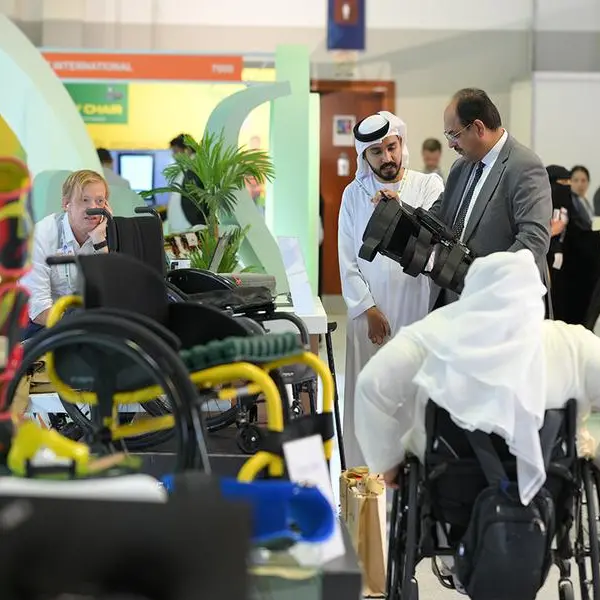Dubai – The Middle East and Africa's banking and finance industry spent $12.68 billion on information and communications technology (ICT) in 2019, according to the latest insights from International Data Corporation (IDC). The global technology research, consulting, and events firm forecasts this figure will reach $13.23 billion this year and continue rising at a compound annual growth rate of 4.7% over the coming years to reach $15.24 billion in 2023.
"The banking and finance industry is becoming increasingly reliant on emerging digital technologies to attract and retain customers," says Nagia El Emary, IDC's senior consultant for the Middle East and Africa. "The sheer magnitude of financial technology (fintech) products and services on the market today is staggering, and financial institutions are increasingly embracing 3rd Platform technologies and innovation accelerators such as cloud, mobility, and artificial intelligence (AI) to increase their market penetration rates, enhance customer satisfaction through the delivery of personalized services, and streamline operations to cut costs and maximize efficiencies. As such, these technologies are becoming an inextricable part of the sector as a whole, and this is only the beginning."
The increasing reliance on cloud across the industry has given rise to cloud marketplaces. Similar to an app store for smartphones, these cloud marketplaces provide banks with access to third-party IT systems and fintech products and services. And like any other marketplace, cloud marketplaces have the power to negotiate better terms with fintech providers than banks alone. Consequently, IDC expects that by 2024 around 80% of banks globally will be purchasing and integrating fintech solutions from cloud marketplaces.
The use of artificial intelligence is also becoming pervasive across the BFSI industry. Indeed, IDC expects that by the end of this year, 85% of banks will have implemented AI applications to enable intelligent decisions and automated processes for corporate know-your-customer procedures, drastically reducing the time it takes to approve enrollments for new corporate accounts. IDC also forecasts that by 2023, 40% of insurers will be automating claims processes with AI technologies and conversational interfaces to improve the speed of response, efficiency, and personalization.
All these trends and more will be discussed during a dedicated banking and finance session that will take place at the upcoming IDC Middle East CIO Summit 2020. The annual event has served as a beacon of ICT thought leadership across the region since 2008, and this year's edition will be hosted at Dubai's Atlantis, The Palm on February 26-27 under the theme 'The Race to Reinvent: Connecting to Leaders to Empower Digital Transformation'.
Combining informative presentations, interactive panel discussions, and dedicated focus groups, the IDC Middle East CIO Summit 2020 will provide more than 500 senior C-Suite executives from a broad range of industries with the expert guidance required to benchmark the digital transformation progress of their organizations. For more information about the event or to register your interest in attending, please visit www.idcciosummit.com/dubai or contact Sheila Manek at smanek@idc.com / +971 4 446 3154.
About IDC
International Data Corporation (IDC) is the premier global provider of market intelligence, advisory services, and events for the information technology, telecommunications, and consumer technology markets. With more than 1,100 analysts worldwide, IDC offers global, regional, and local expertise on technology and industry opportunities and trends in over 110 countries. IDC's analysis and insight helps IT professionals, business executives, and the investment community to make fact-based technology decisions and to achieve their key business objectives. Founded in 1964, IDC is a subsidiary of IDG , the world's leading technology media, research, and events company. To learn more about IDC, please visit www.idc.com. Follow IDC on Twitter at @IDC.
IDC in the Middle East, Turkey, and Africa
For the Middle East, Turkey, and Africa region, IDC retains a coordinated network of offices in Riyadh, Nairobi, Lagos, Johannesburg, Cairo, and Istanbul, with a regional center in Dubai. Our coverage couples local insight with an international perspective to provide a comprehensive understanding of markets in these dynamic regions. Our market intelligence services are unparalleled in depth, consistency, scope, and accuracy. IDC Middle East, Africa, and Turkey currently fields over 130 analysts, consultants, and conference associates across the region. To learn more about IDC MEA, please visit www.idc.com/mea . You can follow IDC MEA on Twitter at @IDCMEA.
Disclaimer: The contents of this press release was provided from an external third party provider. This website is not responsible for, and does not control, such external content. This content is provided on an “as is” and “as available” basis and has not been edited in any way. Neither this website nor our affiliates guarantee the accuracy of or endorse the views or opinions expressed in this press release.
The press release is provided for informational purposes only. The content does not provide tax, legal or investment advice or opinion regarding the suitability, value or profitability of any particular security, portfolio or investment strategy. Neither this website nor our affiliates shall be liable for any errors or inaccuracies in the content, or for any actions taken by you in reliance thereon. You expressly agree that your use of the information within this article is at your sole risk.
To the fullest extent permitted by applicable law, this website, its parent company, its subsidiaries, its affiliates and the respective shareholders, directors, officers, employees, agents, advertisers, content providers and licensors will not be liable (jointly or severally) to you for any direct, indirect, consequential, special, incidental, punitive or exemplary damages, including without limitation, lost profits, lost savings and lost revenues, whether in negligence, tort, contract or any other theory of liability, even if the parties have been advised of the possibility or could have foreseen any such damages.



















